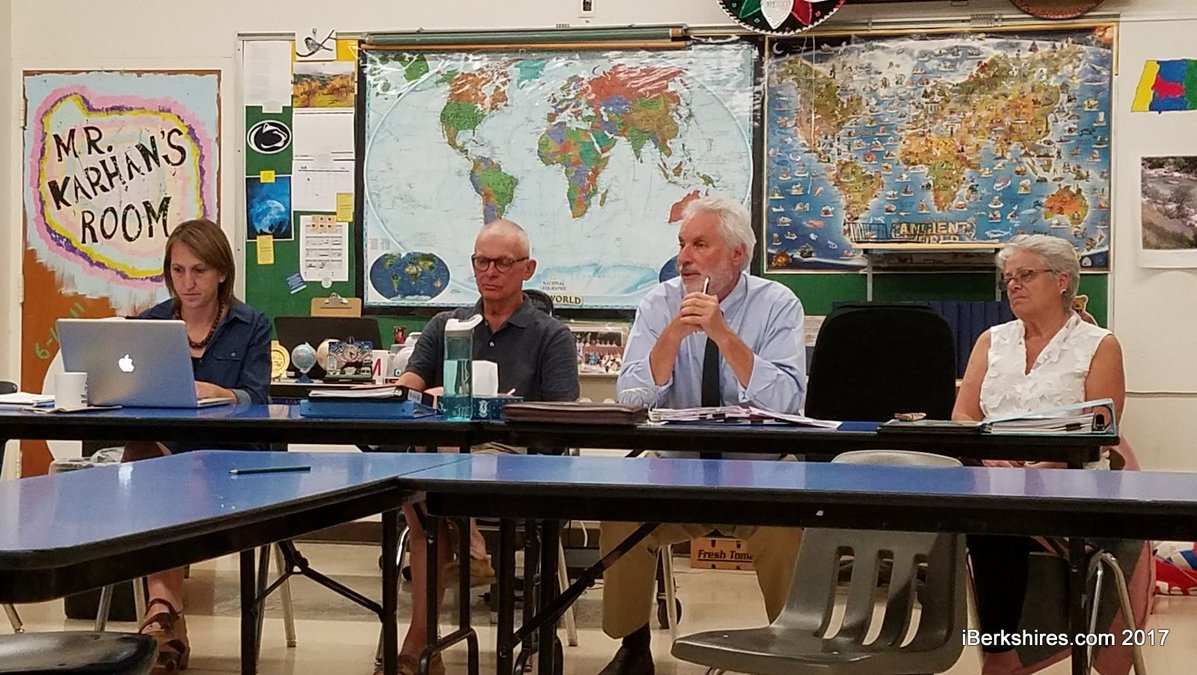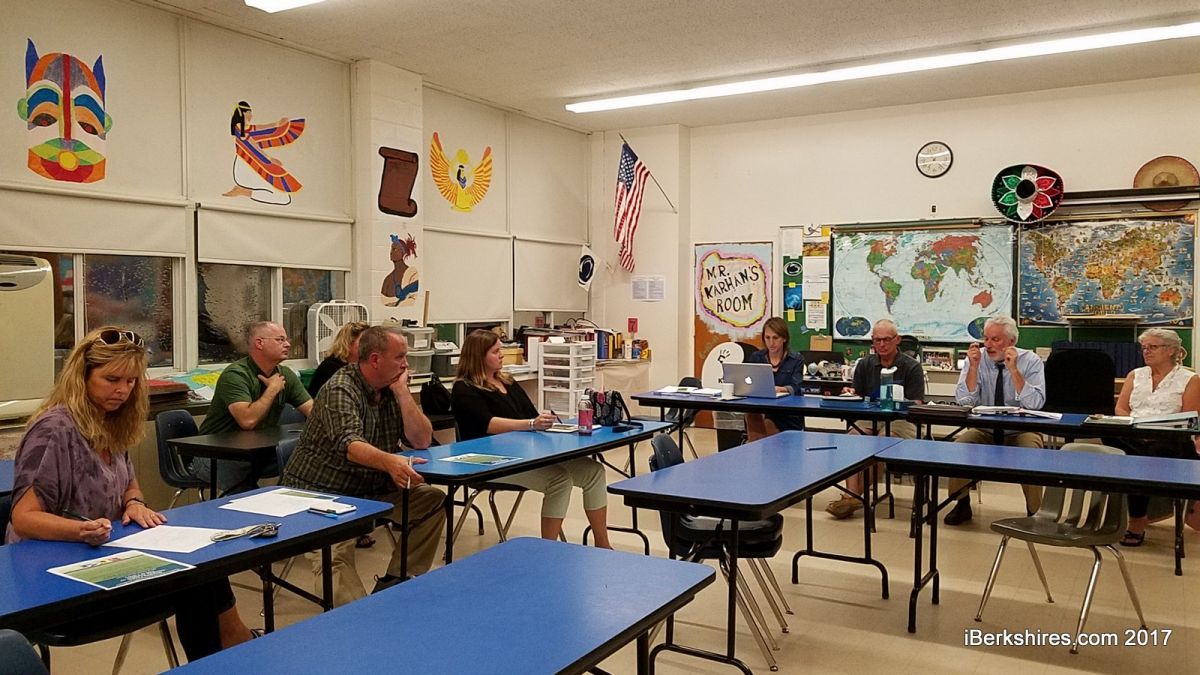
Citizens Petition Filed to Revote Clarksburg School Project

CLARKSBURG, Mass. — The town is gearing up for a second special town meeting after more than 300 citizens signed a petition calling to revote the failed school project.
The $19 million addition and renovation project failed by a single vote — 144-287 — at the special town meeting on Sept. 27. The authorization of the borrowing, of which $11.3 million would be reimbursed by the state but still hit homeowners with a $3.25 increase in the tax rate, required a two-thirds vote.
Select Board Chairman Jeffrey Levanos confirmed that he had accepted the citizens' petition (with the same language as last week's question) and expected the voters' signatures to be confirmed by next Wednesday's board meeting.
Superintendent Jonathan Lev on Thursday said he planned to attend the Select Board meeting and asked that some of School Building Committee members do so as well.
"I hope we can set a date," he said to the committee. "I hope we can discuss ways we can change how the town meeting is held."
Last week's special town meeting turned chaotic when some 450 voters turned out, twice the capacity of the small gym/cafeteria at the school.
"The largest turnout in the history of the town showed up. Over 450 registered voters showed up," Lev read from the letter he wrote to Massachusetts School Building Authority detailing the vote and the actions being taken in its wake. "The town was not prepared properly to handle all these people ... approximately 100 people had to wait in the parking lot after checking in since the gym/cafeteria could not accommodate everyone."
Despite setting up a process for a secret ballot vote to move people along, it took more than an hour just to register voters who lined up along the driveway. Many had to stand outside and about 30 registered but had to leave before voting started.
It was apparent many had not attended a town meeting, or at least not recently because they thought it was like an election: vote and leave. Town meetings are the town's legislative body and require voters to be in attendance to move, amend and vote on questions. A vote on borrowing must be authorized through town meeting although a second vote to exclude the debt from Proposition 2 1/2 can be done by election ballot.
The lesser of 200 registered voters or 20 percent of the total number of registered voters can call a special town meeting and the Select Board must schedule one within 45 days of a citizen's petition. The school district has 120 days to get a funding plan approved; should the vote fail again, it would likely have to start fresh with a new statement of interest. It took the school 10 years to reach this point.
But both town and school officials fear a replay of the conditions of last week's meeting because the largest space in town — the gym/cafeteria — has already proved to be too small. State law requires town meetings and elections "shall be held within the geographic limits of the town unless a special law, charter or by-law provides otherwise."
"There is not a facility in Clarksburg that can hold everyone," committee member Edward Denault said. "The capacity of the room is 200, that should have been a tip-off right there."
The superintendent of North Adams schools, Barbara Malkas, a Clarksburg resident, had offered the use of the Drury High School auditorium but Lev said they couldn't use it because it was outside of the town.
Lev said he's asked the school legal counsel to look into the possibility of a waiver or exception from the state. Town Administrator Carl McKinney, last week, said he was looking into the possibility of stretching the definition of geography to McCann Technical School since the town is a member of the regional school district.
"That isn't fair to anybody, for or against, to be in that situation where you want to be able to hear what's going on and discuss," Lev said. "And not have to wait an hour."
There is also the possibility of using more of the school by running a live feed from the gym into a classroom, which is allowed by state law, but that would raise problems of participation since it would be one-way. It would also only be in one room that could not accommodate 100 people.
The School Building Committee also discussed other options, like erecting a giant tent in November on town field, or somehow trying to lengthen the time of the special town meeting.
The committee is also frustrated by allegations that the three informational forums leading up the vote were being cast as PTG "pep rally" meetings. The sessions were hosted by the School Building Committee and attended by the district's designers and project manager, and town's bond counsel. The PTG did outreach with signs and calls encouraging people to attend. About 50 to 70 people were at each one.
"We went to the effort of sending postcards to every address in town, everybody had the opportunity to come," Lev said. "It seemed to be as fair as it could be. ... people had a chance to say what they thought. I thought people were pretty good. ... I didn't feel that people were being put down."
The Select Board is apparently considering doing its own information session to give the "town's side," although board members and the town administrator attended the sessions and discussed the hit to the town's finances.
At the two meetings attended by iBerkshires, there were a number of sharp questions about the financial aspect of the project and some applause, particularly at the last one, in support of the school. No one was prevented from speaking about the school; one woman was cut off by the town administrator when she began complaining about the Horrigan Road project.
Denault wondered why the town accountant and the treasurer, who reportedly had reservations about the financing, did not attend or were not invited by town officials to the meetings. The town's assessor attended at least the first session.
Principal Tara Barnes asked if the moderator could be asked to facilitate any further sessions to provide a neutral voice.
In the meantime, Lev asked committee members not to be rattled by the influx of emails and posts on social media.
"I just suggest that emails any of you get that are maybe giving information you don't agree with, that you don't respond," he said. "I'm trying very hard to respond in a factual, thoughtful way ... none of you should feel you need to respond."
Barnes also suggested that the committee prepare a capital plan for the school, which was brought up by property owner Joseph Smith, to give voters a Plan B should the vote fail again. "So people really know what they're looking at," she said.
Denault noted that the boilers and roof alone could be a $1 million each. The 1970s section, which the designers targeted for razing, had a bathroom sink fall off the wall this week.
"Any little repair is going to kick in a Proposition 2 1/2 override ... an override is not going to pass in this town," he said. "As the years go on and the town can't afford it, the school is going to decay. It won't be a vote to close the school, it's just going to happen."
He and committee member Mary Giron said the committee had a responsibility to support the petition for a new vote after two years of work and for the nearly 300 who voted for it.
"Think about it, 144 people are going to govern the future of Clarksburg if we don't go through with the petition," Denault said.
Giron, a parent and school employee, pointed to Charles Moran, a committee member who on his deathbed had desperately wanted to vote. He was unable to and died the next day.
"We owe it to people like him, and to the people of this town to exhaust every option we have," she said. "And then if it doesn't go through, we can say OK but we did everything we could do.
"There's no question that we have to keep going."
More articles on the school project can be found here.
Tags: Clarksburg school project,















